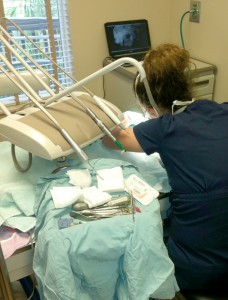 Want to know what drives veterinarians and their staff nuts? Here are some common pet peeves (well, people peeves, actually).
Want to know what drives veterinarians and their staff nuts? Here are some common pet peeves (well, people peeves, actually).
Veterinarians are “real doctors.” They go through just as many years of difficult study as any human doctor. Please, treat your vet with respect! If you wouldn’t dream of walking into your doctor’s office without an appointment, remember that your vet is probably just as busy. Also, it is so thoughtful to call us if you can’t make your pet’s appointment. Not only does it show respect for the vet’s time, someone may be waiting for that cancellation.
Keeping us apprised of changes in your pet’s behavior or health can often help identify problems early on and intervene more quickly. This can save your pet discomfort, and save you some money in the long run, if we can keep the issue from becoming more serious. Early detection and treatment isn’t just a good idea for humans!
So do call us to ask questions about your pet’s health, but understand that the person answering the phone may not know the answer, and that the doctor is busy and cannot usually take calls during work hours. Don’t be offended if we ask to check with the doctor and call you back. And remember, your veterinarian does not possess a crystal ball, or the ability to diagnose over the phone. We can’t tell “how long this bout of diarrhea will last,” or “if it will go away on its own.” If we get back to you to let you know the doctor wants to see your pet, there’s a good reason, and it’s not about being “in it for the money.” If you knew how little even the veterinarians actually make compared to what they owe in loans, you’d understand how absurd this statement really is.
On a related note, one thing you can say that is guaranteed to elicit an internal, “so what?” is to tell us, “I’ve spent [insert $$$] at your clinic!” We aren’t keeping track. That’s the thing about medical problems. They occur with zero regard for how many issues you have already treated. Life isn’t fair! I recommend pet insurance.*
Many veterinary clinics are not equipped to deal with emergency situations requiring a lot of time and staff, especially if it occurs at the end of our working day. If we refer you to another clinic or animal hospital, it’s because your pet needs more immediate or intensive care than we can provide, not because we don’t want to treat your pet. Also, realize that we cannot cancel all other appointments to accommodate your emergency. Always keep the address and phone number of a local emergency clinic handy in case you have a situation we simply cannot handle right away.
And again, if you have a very sick or injured animal and no money, please don’t tell us we are uncaring people because we won’t work for free. Would you tell your auto mechanic that he should do your transmission repair for free, because he loves cars? Do you think our supplies and equipment and utilities and staff are free?
Finding out that an owner stopped giving necessary medications or treatments is frustrating for us. It’s usually accompanied by a frantic phone call and unscheduled visit that disrupts the other appointments, and can be life-threatening for the pet. If you are having trouble giving medications, please ask your clinic for advice as soon as possible. We’re all pet owners too, and I guarantee we have all faced similar challenges! Just because we are veterinary staff does not in any way mean that our pets all open wide for their medications. We wish.
Just as in humans, the aftermath of a pet’s surgery can be painful. Please make sure that you take home any pain meds your pet may need—and give them as instructed. The old wives’ tale that animals don’t feel pain “in the same way” as humans do is utter nonsense. If you want to test this theory, step on your pet’s tail or paw. Pet screech = feeling it. The notion that they feel these stimuli as painful but not, say, surgical removal of a uterus, seems nuts to me. Animals have biological reasons to try to hide pain. So the safe assumption, in my opinion, is if would hurt you, it hurts them.
Ultimately, the best way to save money and keep your pet healthy is through preventative measures. Schedule a check-up once a year, keep your pet’s vaccinations current, and report any changes in behavior or health immediately. Remember, if you can’t afford the costs of regular veterinary visits, vaccinations, medicines, and nutritious food with a reserve for emergencies, don’t get a pet! As your best friend and your dependent, your pet is entitled to the best care you can find.
If you recognize yourself in any of these scenarios, I hope that you will take this advice to heart. If you do, you will be saving time, money, and possibly your pet’s life.
*Do your research though. Not all plans are created equal. And if you can, sign up for it when your pet is young.